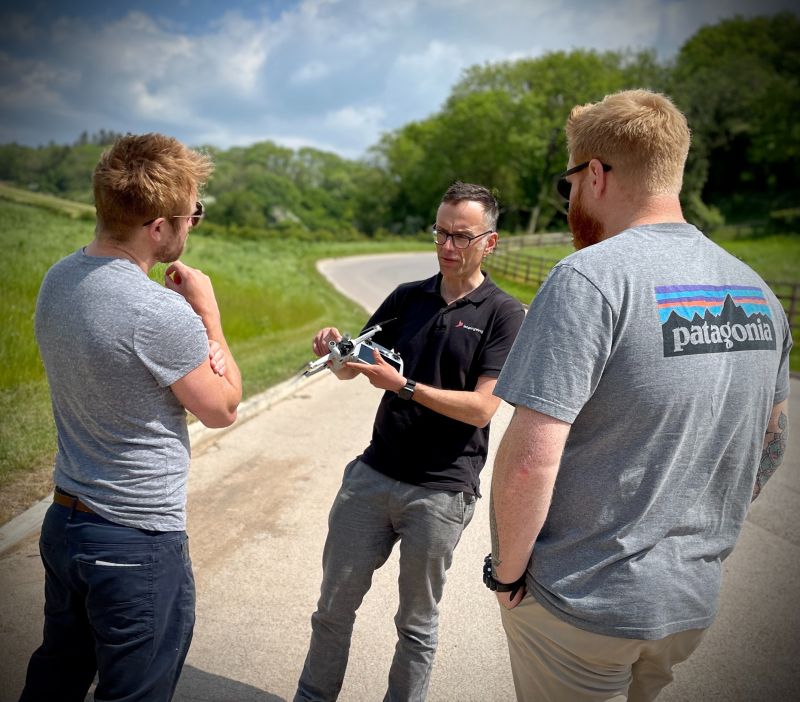CAA Announces (ANOTHER) Shake up of Drone Qualifications
*Maybe
We have just seen the future of drone training and qualifications. At least, a possible version of it.
On 5th July 2023 the CAA launched a consultation entitled The Future of Remote Pilot Competency in the Specific Category. And I emphasise, this is a consultation, so nothing is set in stone. That said, consultations are generally a pretty good indicator of what is in the pipeline and we can reasonably expect a healthy slice of what has been laid out to become reality.
There are some major headlines about drone training in there, including a proposed replacement of the GVC commercial drone qualification, requirements for medicals, and mandatory flight training both for initial applicants and potentially for those renewing their authorisations to fly. In short, a big shake-up is on the cards.
So, what does this mean if you are currently operating drones? Let’s run through the key points.
End of the GVC? But I’ve only just got my GVC!
Firstly, note that none of this affects folk flying in the Open Category, most likely under an A2 Certificate of Competence. These are proposed changes to the Specific Category which (warning – sweeping generalisation) mostly covers drones above 2kg.
The proposal is that the GVC be replaced in the drone training world by a new ‘RPC’ qualification. This will have two flavours, RPC-A (Advanced) and RPC-B (Basic). Importantly the proposal is that the GVC will be phased out. Those already holding it will likely be able to continue under ‘grandfather rights’, but GVCs would no longer be acceptable for new pilots. Given that the first GVCs will expire at the end of 2025, it seems likely that some sort of conversion process will be needed even for these pilots to continue flying.
Should I still do my GVC conversion?
Hell yes. Anyone currently flying in the Specific Category but not holding a GVC will be unable to fly legally from January 2024. Any changes outlined in the consultation are unlikely to be brought in before around 2025 at the earliest.
What is the difference between ‘A’ and ‘B’?
Although not laid out clearly, it appears that the type of certificate required will depend on the type of flying and operational risk which the pilot will encounter. The consultation suggests some new subtleties in operation types such as ‘localised Beyond Visual Line of Sight (BVLOS)’ v ‘en-route BVLOS’. I suspect that an RPC-B may be deemed acceptable for the first, with an RPC-A required for the latter.
What’s this about flight training?
There have been concerns in the drone community (and shared by the regulator) for a while that many pilots are not up to scratch. The proposed new qualifications would mandate defined durations of flight training including long overdue insistence on flying without GPS. This follows a number of accident investigations where the pilots were found wanting in a GPS-denied environment.
The training bodies (RAEs) look likely to be charged also with assessing whether existing pilots must undertake refresher training on renewal. This will no doubt raise heckles amongst many seasoned pilots in the community.
And note, the new qualifications will be valid only for 3 years.
And a medical too?
Drone pilots have not previously needed medical certificates, but this looks set to change. But, don’t panic. The suggested standard is the LAPL certificate which in many cases can be issued by a GP and is slightly below the level for a Class 2 medical. If you don’t have any serious medical history and have decent corrected vision and eyesight then you’ll be fine. AND, this will be a requirement only for the RPC-A qualification.
Is there any good news?
Yes, and not just for the (slightly ailing) RAE market which will be salivating at the prospect of a large cadre of pilots needing conversions and flight training.
In my view, the proposed system paves the way for much easier access to innovative drone operations, especially BVLOS. As an example, there is considerable interest in remote operation of drones for security patrolling from a remote operating position. Often these sites are already tightly controlled, and the airspace risks are both minimal and predictable. The new RPC qualifications are likely to have the option of ‘bolt-on’ modules, and the CAA has already laid out plans to assess waypoint (automated) flying as a practical skill, which should make the application process for ‘fancy drone work’.
Training with Leaping Wing
We provide bespoke training for your industry including both the GVC and A2 C of C in partnership with our colleagues at Consortiq. We are based in Cardiff, and have a training centre where we provide both instructor-led ground schools and practical flight training.
Contact us today if you think you may be looking to get trained.

